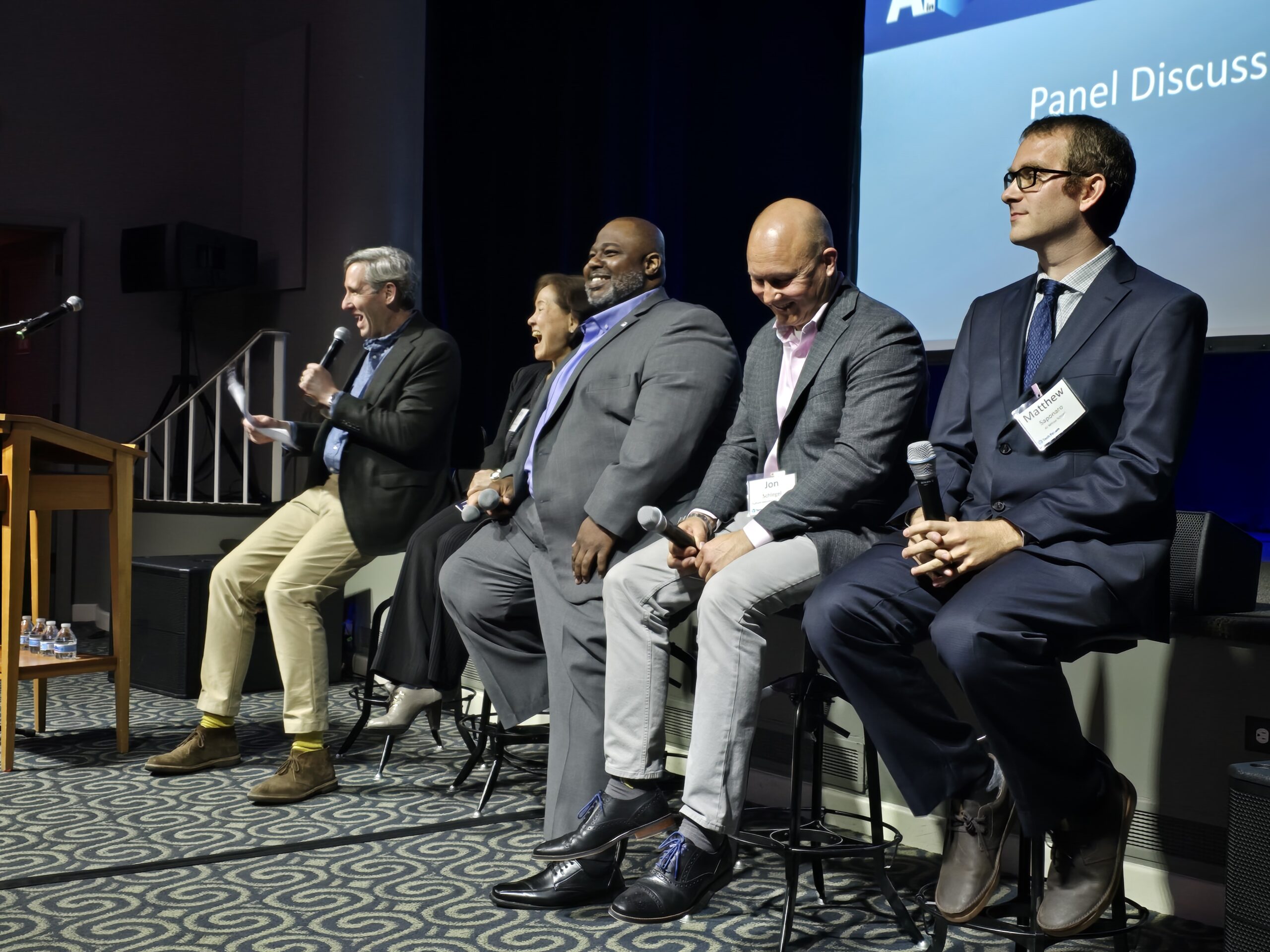AI is no longer an imminent technology. it’s in use right now, in industry, government and education.
The Tech Forum, a Delaware-based nonprofit association that provides resources to the state’s tech community, has been highlighting the use of AI in the state since generative AI tools like ChatGPT came on the scene. Its second “AI in DE” at Theatre N gave attendees a glimpse at how AI is used in different sectors, and an opportunity to learn from people who use the technology every day.
Here’s what panelists had to say about the state of AI in Delaware.
Think of AI like the next generation of programming
Entrepreneur Matt Saponaro’s youngest AI adopters at the AI Whoo School coding academy he founded are four years old. This is the generation that will grow up with this technology as it continues to evolve, and he works to teach them early.
While AI in educational settings tends to fuel cheating fears, Saponaro sees AI as another step in the evolution of programming.
Coding has transformed from physical punch cards to C programming to Python, which, by comparison, “magically,” builds applications, Saponaro.
“Now we have AI that can just magically do a whole bunch of other stuff,” Saponaro said.
His students are learning the technology by building playable multi-character games by age 12.
AI processes large sets of data to improve statewide cybersecurity
Delaware’s small security team is responsible for digitally protecting all branches of government, including judiciary and legislative, said Delaware chief security officer Solomon Adote.
To keep up with the amount of data it processes, the security agency dabbled in machine learning, which would evolve into the cybersecurity AI they use today. “We didn’t find AI, AI really found us,” Adote said.
AI that learns and evolves is important to a small team with limited taxpayer funding because the amount of data that Delaware needs to protect has exceeded human capacity to handle it, he said.
“There’s no way an army of human beings, even with our partnerships, can process this much data,” Adote said.
AI is a bridge toward future tech like quantum computing
Jon Schlegel, chief information security office at DuPont Information Technology, sees AI as a part of something bigger.
“Ultimately, I think AI is really a bridge to quantum computing,” said Jon Schlegel, chief information security office at DuPont Information Technology.
Quantum computing, a technology Schlegal says will be in use by around 2030, goes beyond the binary ones and zeros of traditional computing. It uses atomic matter and light to do things that are too complex to achieve now, such as simulate drug interactions, predict the weather, or other things currently only possible in science fiction, he said.
In the meantime, he says, companies will do better if they lean in rather than avoid AI.
“I know a lot of people with AI, they get very nervous, especially coming from corporate America,” Schlegel said. “It’s not necessarily that AI will replace humans, but that humans who embrace and utilize AI will replace humans.”
AI can be used in academia to improve productivity
In academia, AI in the form of machine learning has been used for at least a couple decades, said Cathy Wu, chair in engineering and computer science at the University of Delaware.
Now that AI can do things like write papers, Wu says its productive usage in research and education is to make routine work easier so that humans can use their creativity on things that really matter.
Learning with AI can be much more personalized than traditional learning, according to Wu.
“If you use it wisely and creatively, the power is there,” Wu said. “It’s just [knowing] how to harness it and use it right.”







